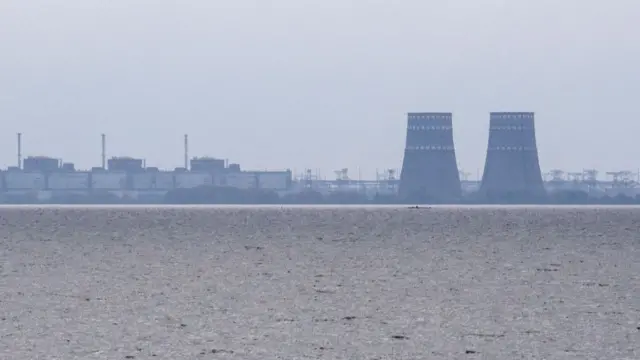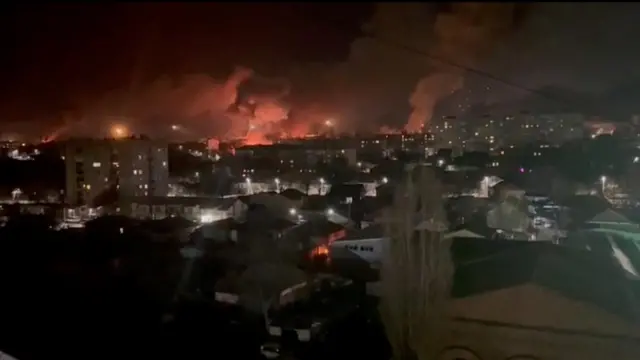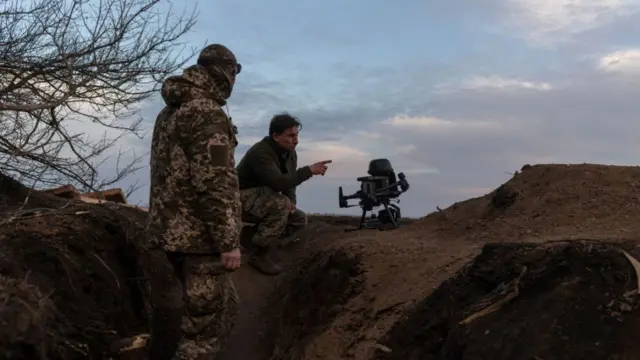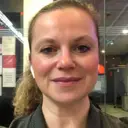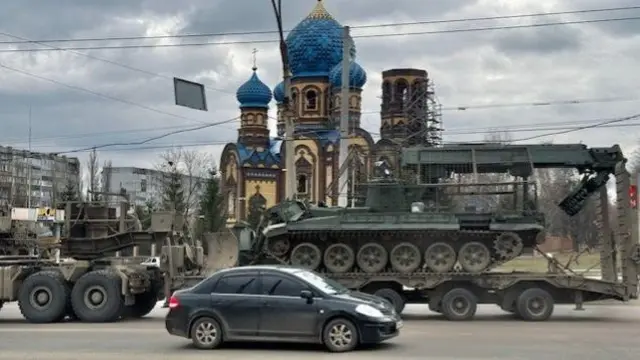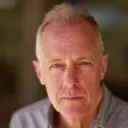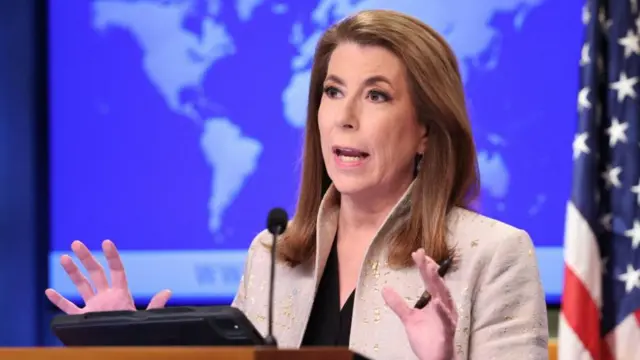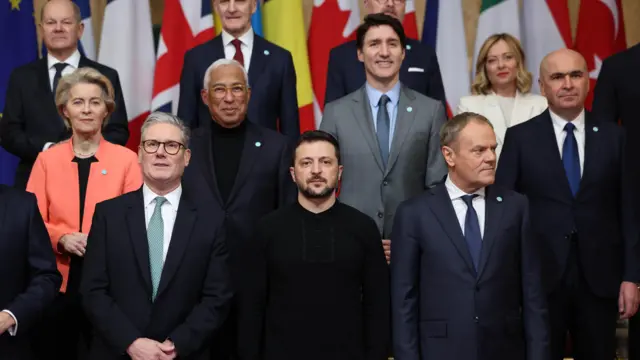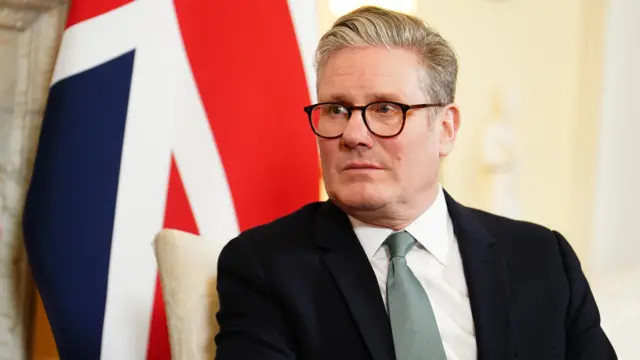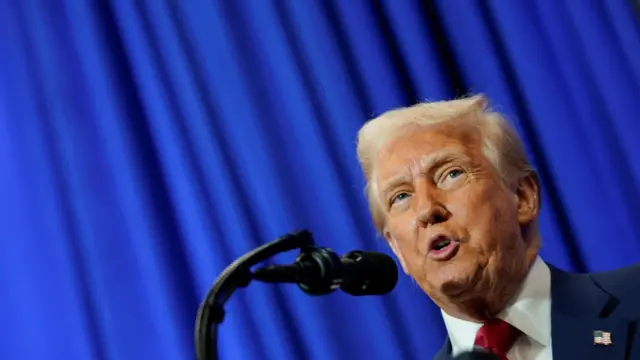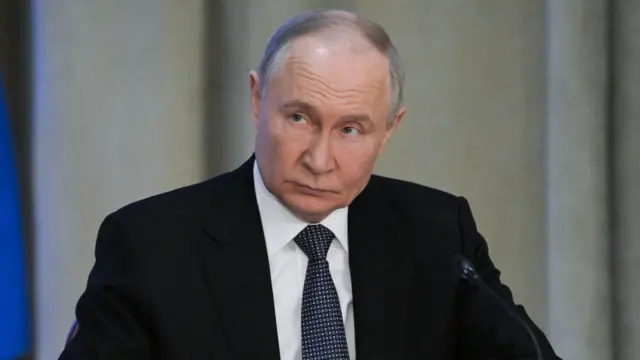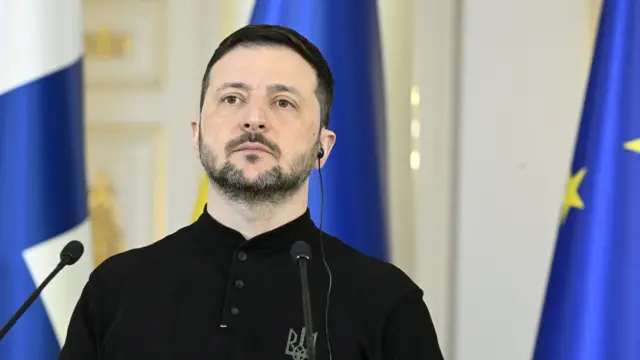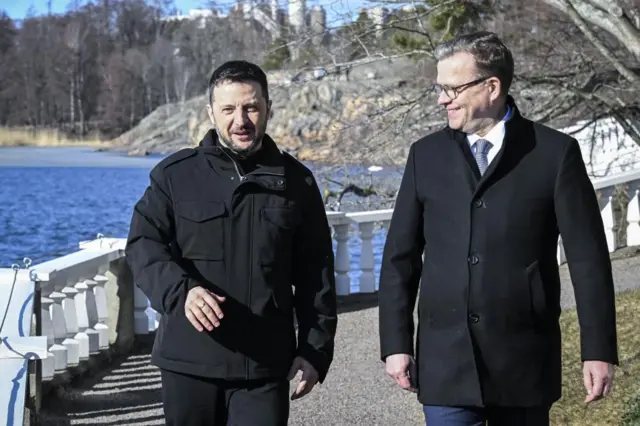UK to host closed talks with 'coalition of the willing'published at 07:13 GMT 20 March
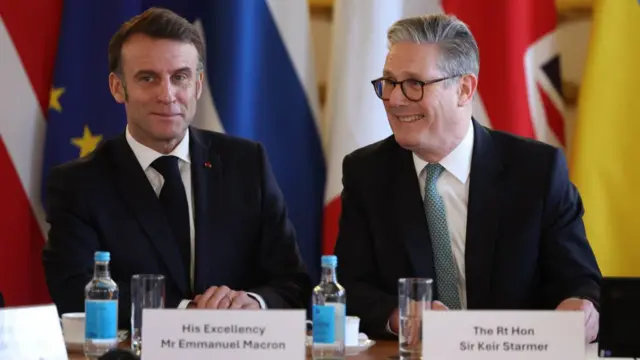 Image source, EPA
Image source, EPAAs EU leaders meet this morning, the UK will host its own talks, with a closed meeting of senior military officers from the "coalition of the willing".
They are drawing up plans for proposed peacekeeping forces for Ukraine.
Senior military officers from the nations that make up the coalition, led by Britain and France, are due to discuss how this would work in practice when they gather at the UK's Permanent Joint Headquarters in Northwood.
Last week, Prime Minister Keir Starmer said they are moving to an "operational phase" of practical planning.
More than 30 countries are expected to contribute to the coalition, according to a UK government spokesperson.
The plan was set out earlier this month and would work to uphold any ceasefire in Russia's war on Ukraine.
- But there remain some major obstacles, our security correspondent Frank Gardner writes
